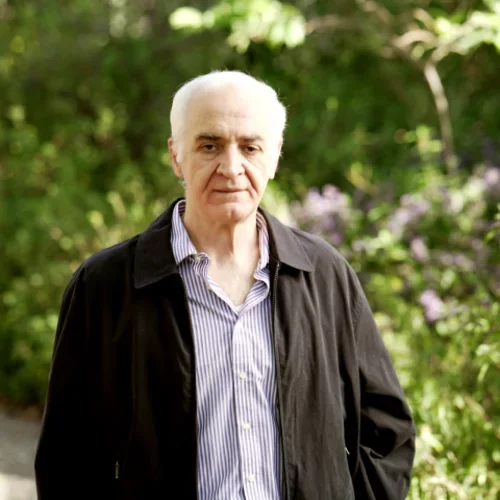
About
Marino Di Franco earned both his Bachelor’s in Biology (“Licenciado en Biologia”, 1986) and PhD degree in Cell Physiology (1991) from the Universidad Central de Venezuela (UCV). He had no further postdoctoral supervised training but rather started his own research program thereon after. First appointed for a tenured faculty track position in 1991 (Instructor Professor) at the Faculty of Sciences of UCV, he subsequently advanced to the positions of Assistant (1995) and Associate Professor (1999). He started his own laboratory in 1992 (Laboratory of Muscle Physiology and Biophysics, UCV) geared towards the study of electrophysiology and calcium homeostasis in skeletal muscle. A fter fleeing his country in 2002, Dr. Di Franco was appointed by the Department of Physiology at UCLA, and currently holds the positions of Adjunct Professor and Research Physiologist in this Department.
Research Interests & Expertise: Optogenetic techniques to approach the study of muscle physiology
Since my undergraduate years, my research interests focus around the study of muscle electrophysiology and calcium homeostasis in both health and disease (e.g. muscle dystrophy, myotonia, malignant hyperthermia). To this end, I combine several electrophysiological, optical and microscopy techniques (epifluorescence, TIRF, confocal and two-photon microscopy; FRET, among others) and animal models. In recent years, I started an additional line of research aimed at using optogenetic techniques to approach the study of muscle physiology. In addition to using optogenetic actuators for the practical purpose of controlling the excitability (and contraction) of muscles lacking nerve input, I am also using opto-actuators to control variables relevant to basic muscle research such as a) the membrane potential of membrane compartments not accessible to classical electrophysiological techniques (e.g. the transverse tubular system) and b) the intracellular concentration of ions such as sodium and chloride to study their role in mechanisms supporting muscle excitability (e.g. regulation of sodium-potassium pump by sodium).
Honors and Awards
- 2000 Annual Award to Best Research Work, Universidad Central de Venezuela.
- 1994 Orinoquia Award to best PhD Thesis, Orinoquia Fundation, Venezuela.
- 1991 Letter of distinction in Doctoring, Faculty of Sciences, Universidad Central de Venezuela.
- 1990, 1993, 1997, 1999 Award from Sistema de Promoción al Investigador (SPI), SPI Foundation, Ministry of Science and Technology, Venezuela.
- 1986 Distinction in graduating with highest grades of Class of 1986, Faculty of Sciences, Universidad Central de Venezuela.
Department: Physiology